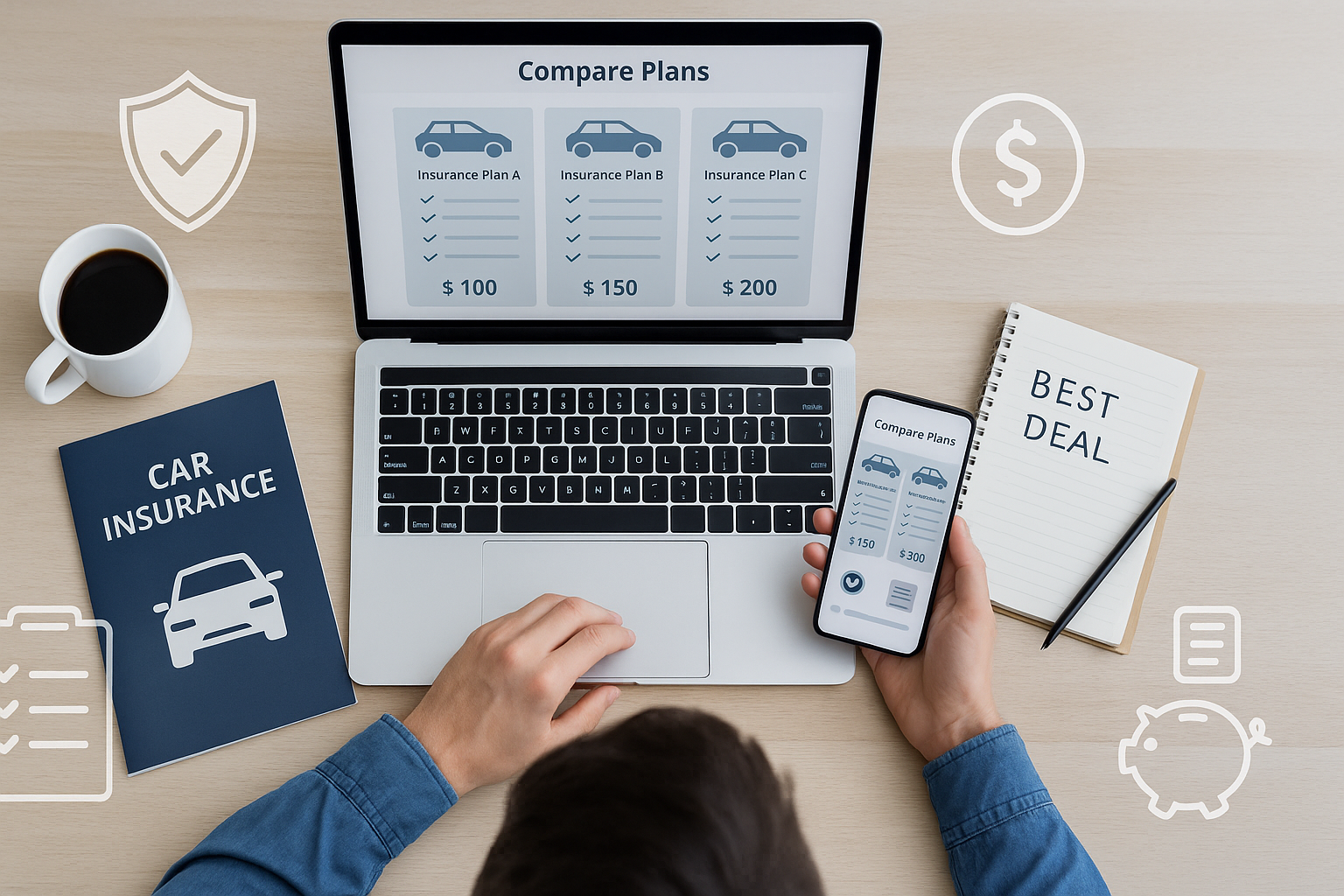
Car insurance is more than just a legal requirement—it’s a key part of protecting your finances, your vehicle, and your peace of mind. But with so many providers, options, and hidden fees, choosing the right policy can feel overwhelming. The good news? Getting the best deal on car insurance is easier than you think—if you know what to look for.
This guide walks you through how to compare car insurance plans and make smart choices based on your budget and driving needs.
🔍 Step 1: Understand the Types of Coverage
Before you compare plans, know what each type of coverage means:
Liability Coverage – Covers damages or injuries you cause to others (required by law)
Collision Coverage – Pays for damage to your car from a crash
Comprehensive Coverage – Protects against theft, vandalism, weather, and more
Uninsured/Underinsured Motorist – Covers you if the other driver has little or no insurance
Personal Injury Protection (PIP) – Covers medical expenses for you and your passengers
👉 Pro tip: You don’t always need full coverage. Tailor your policy to the age and value of your car.
💸 Step 2: Compare Quotes from Multiple Providers
Prices vary—sometimes by hundreds of dollars for the same coverage. Here’s how to compare wisely:
Use online comparison tools to view multiple quotes side-by-side
Get quotes from at least 3–5 insurance companies
Make sure the coverage limits and deductibles are the same across all quotes
Ask about discounts (good driver, multi-policy, low mileage, student, etc.)
👉 Pro tip: Don’t just go with the lowest price. Balance cost, coverage, and customer service.
📋 Step 3: Review Policy Details & Fine Print
Once you’ve narrowed down your choices, dig deeper:
What’s the deductible? (A higher deductible usually means lower monthly premiums)
Are there coverage exclusions or limits?
Does the policy include roadside assistance or rental reimbursement?
How easy is the claims process?
Are there usage-based or telematics programs that reward safe driving?
🛠️ Step 4: Customize to Fit Your Needs
Not all drivers are the same—your car insurance shouldn’t be either.
If you’re a low-mileage driver, consider a pay-per-mile plan
If you drive an electric vehicle, ask about EV-specific coverage
For young drivers, look for policies with student discounts and driver education incentives
If your car is older and paid off, you might drop collision or comprehensive to save
🧠 Bonus: Smart Questions to Ask Before You Buy
What happens if I get into an accident with an uninsured driver?
How quickly are claims processed?
Are there any cancellation or hidden fees?
Can I manage my policy through a mobile app?
Is there 24/7 customer support?
Final Thoughts: Choose Smart, Drive Safe
Finding the best car insurance deal isn’t just about saving money—it’s about finding the right balance of protection and price. Take the time to compare, ask questions, and tailor your policy to match your life. When you do, you’ll hit the road with more than just coverage—you’ll have confidence.
Leave a Reply